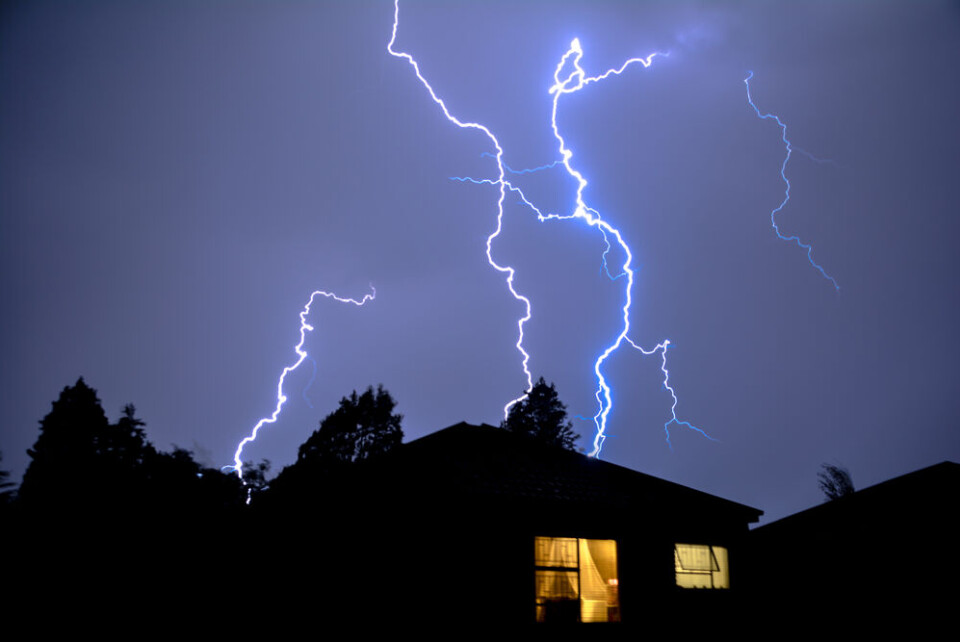-
Photos: exceptional storm floods Antibes streets
Three weeks’ worth of rain fell in just a few hours
-
Storm Leonardo set to impact France in next few days
Heavy rain forecast in the south of the country as storm hits Spain
-
Insurance denied for Britons' French hilltop home due to 'flood risk'
Underwriters decided to end cover linked to alleged proximity to water
How do I get a ‘lightning certificate’ for French home?
If your home is damaged by lightning during a storm, insurers may require this as proof

Reader Question: I was informed I need a ‘lightning certificate’ to confirm damage to my home. How do I get one of these?
A lightning certificate (attestation de foudroiement) is an official document that details stormy weather conditions on a given day and location, with a particular focus on lightning phenomena.
It is compiled by experts and issued upon request to the state weather forecaster Météo France for its services that are closest to the specific storm event.
Private firms can supply certificates too, but they are all based on data gathered from the Météo France network.
Although your mairie website may carry details of how to request a certificate, it cannot issue one directly.
Lightning certificates in France are ordered online
An attestation de foudroiement from Météo France costs €61 and takes up to five days to be delivered, either by post or email, and you can request one online here.
Some private firms advertise certificates for around €30-€35 and say they can deliver one in 24 to 72 hours, but it is advisable to check first that your insurer will accept such a certificate, as the only universally accepted certificate is from Météo France.
Météo France also produces a similar document called a certificat d’intempérie (bad weather certificate) that some insurance companies may ask for, and which is not geared specifically to lightning.
These help to prove any property damage was caused by adverse or extreme weather conditions, including gales, hail, snow, heavy rain or lightning.
Note, however, that these certificates are not required in the case of damage caused by incidents likely to fall under the ‘natural disaster’ heading.
The latter, such as floods and landslides, follows a different procedure and requires the publication of a decree relating to your commune.
Read more: France’s ‘catastrophe naturelle’ insurance system: how to claim
As well as proving there was extreme weather at the time and place cited in a compensation claim, the certificates also help insurance companies determine whether specific policy thresholds for entitlement to payments have been met or exceeded.
Contact insurer if in doubt
Usually, comprehensive home or car insurance covers the cost of damage caused by bad weather.
As a rule, insurers will not ask for a certificate if a severe weather event affects a very large area of the country, but may if an event was very localised.
In addition, if damage caused by lightning and thunderstorms happens over the same short period of time, you should need only a single certificate to cover them all, rather than multiple ones.
If in doubt, talk to your insurer.
It is a policyholder’s responsibility to secure a lightning certificate.
For tenants, it depends on who owns the damaged property (for example, their car). For property owned by the landlord, then it is down to him or her.
Whether you are a property owner or tenant, you should keep all documents relating to the claim for 10 years after the end of the compensation period.
Some insurers do reimburse the cost of obtaining a lightning certificate if compensation is paid – you can check this directly with them.
Related articles
Storms in France: Insurers advise action to limit damage to home
Storms in France: what to do if at home, out walking or in car
























